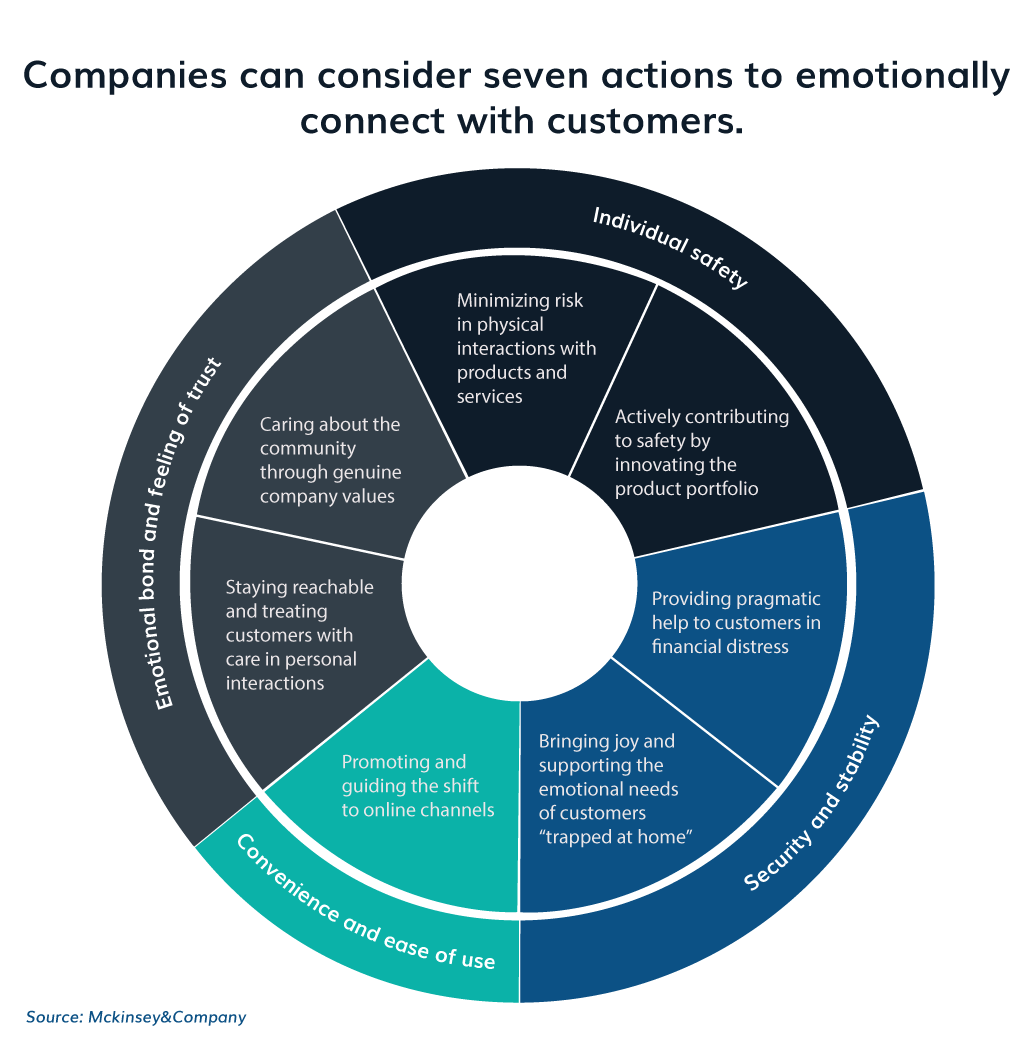The 2020 pandemic brought the world to its knees. The impact is far-reaching – people have lost their jobs, homes, health and loved ones. It has changed everything.
Businesses just cannot afford to ignore the fact that consumer sentiment is at an all-time low.
“A recent McKinsey survey of US consumers found that 64 percent of respondents have felt depressed, anxious, or both over the past several weeks, and 39 percent stated that they would be unable to pay their bills after one month of unemployment.”
Customer experience has taken on a whole new meaning in the ‘new normal.’ Today, as noted in a recent article by McKinsey, companies have to align their customer experience efforts with their “customers’ primary needs such as safety, security, and everyday convenience.”
Leading with empathy and emotionally connecting with customers is the new mantra for organizations and one that will help drive a more customer-centric mindset – which is key to building and maintaining strong customer relationships during this time of crisis.
McKinsey has identified seven actions that will help companies build better emotional connections with customers:
How digital communication can help establish an emotional connection with customers
It’s clear that companies can’t engage with customers today in the same way they engaged with them yesterday. The best way to establish an emotional connection with today’s customers and ultimately, provide a great customer experience, is through relevant, personalized digital communications.
Remember that convenience and ease of use is key, so ensure that you communicate with customers on their channel of choice. And make the shift to digital an easy one for those customers navigating these channels for the first time.
To ensure your digital customer communication drives an emotional connection with your customers, consider the following:

Keep communicating
You cannot just stop communicating with your subscribers because COVID-19 ate up your 2020 customer communication strategy. Maintaining and even increasing customer communication during the crisis will help build consumer trust.
Your messaging must however change in terms of content and tone (make it more relevant) and this includes tweaking your automated communications.
Businesses that survive this crisis will do so because they have strong and meaningful relationships with their customers, the ones that digital communications help build.

Become more human
One of the shifts in messaging that we are already seeing is the change in language and tone. Brands are becoming more human. It’s important to remember that behind every digital channel, there is a person.
Empathy and kindness are the new marketing tools! Digital channels are no longer being used as tools to collect funds or make a sale, but rather to connect with people and make a difference in their lives by offering genuine guidance and assistance – especially in such trying times.

Offer genuine help
Companies should be looking to streamline their processes to allow customers to achieve their day-to-day tasks online, thus helping them practice social distancing. An email is a great tool for educating customers regarding online changes and enhancements.
People are looking for brands to trust. This can be done by providing easy to understand, relevant communication about things that matter to them such as their financial, physical, and mental health.

It’s ok to be positive
While the current situation might not lend itself to humor, there is nothing wrong with sending uplifting messages that brighten someone’s day. This is well expressed by Accenture: justifiable optimism can have a positive impact on confidence.

Be respectful of the unsubscribe
People are pretty overwhelmed right now and some might choose to unsubscribe or pause your email communications. That is ok.
Unless the information you are sending is vital – such as canceling or postponing an event, changing a policy or notifying people about a business interruption – your email needs to have an opt-out function available to your customers.
For years, I have understood the need for good communication and I have marveled at the power of great communication. But now, more than ever, organizations need to put this into play.

Dori-Jo Bonner
Account Strategist, Africa




